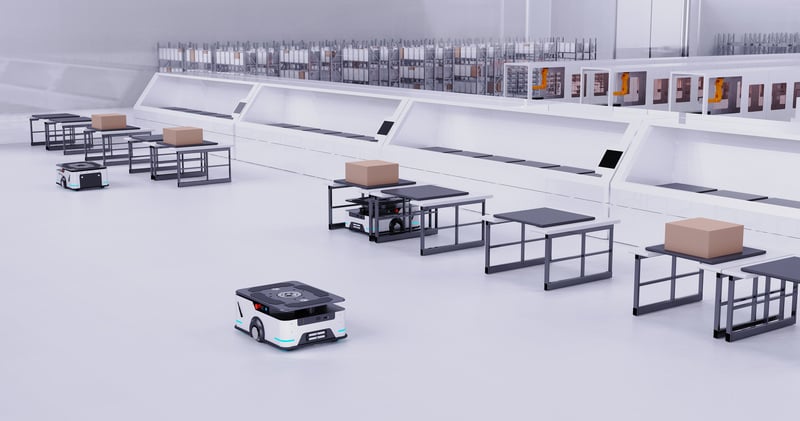© © 2025 Copyright © Youibot Robotics Co., Ltd. All rights reserved.SitemapPrivacy Policy
Are you struggling to decide between traditional industrial robots and autonomous mobile robots for your manufacturing requirements? With technological advancements rapidly changing the industrial automation, it can be difficult to determine which option is best suited for your business. In this blog post, we will delve into a detailed comparison of traditional industrial robots and autonomous mobile robots, weighing up the pros and cons of each to help you make an informed decision.
Traditional industrial robots are designed to perform repetitive tasks with precision and accuracy in a fixed location, while Autonomous Mobile Robots (AMRs) have the ability to navigate autonomously and adapt to various environments. Unlike traditional industrial robots, AMRs do not require safety barriers or cages as they can detect obstacles and avoid collisions, making them ideal for dynamic manufacturing environments.
One of the biggest advantages of AMRs over traditional industrial robots is their flexibility. AMRs can be reprogrammed and deployed in different parts of a manufacturing facility as needed, whereas traditional industrial robots are usually designed for a specific task and cannot easily be repurposed.

When it comes to human-robot collaboration, safety is paramount. While traditional industrial robots also have safety features such as emergency stops, limit switches, and safety barriers, AMRs utilize more advanced safety sensors to detect and avoid collisions with humans or other objects.
AMRs use technologies such as laser scanners, radar, visual cameras, and ultrasonic sensors to achieve these safety features, and these devices can adapt in real-time to changing environments.
When comparing the costs of AMRs and traditional industrial robots, it's important to consider both the upfront and ongoing expenses. Generally speaking, AMRs tend to be more expensive upfront due to their advanced technology and flexibility. However, they can also provide cost savings over time due to their increased efficiency and productivity.
Traditional industrial robots may be less expensive upfront, but they are often limited in terms of their capabilities and may require more maintenance over time. Additionally, they may not be able to adapt to changing manufacturing needs as easily as AMRs.
While both AMRs and traditional industrial robots can be integrated into a larger manufacturing system, AMRs are often easier to integrate due to their plug-and-play capabilities. Traditional industrial robots usually require specialized programming and customization to work seamlessly within a production line.
AMRs are equipped with advanced sensors and software that enable them to perform a wide range of tasks beyond what traditional industrial robots are capable of. This includes tasks such as material handling, inspection, and inventory management. Traditional industrial robots, on the other hand, are typically limited to specific tasks.
We hope that our comparison has provided you with a better understanding of traditional industrial robots and autonomous mobile robots. If you're uncertain which option is best suited for your business, don't hesitate to contact us for further guidance. Youibot can assess your needs and recommend the most suitable solution based on your specific requirements. Contact us today to take the first step towards optimizing your manufacturing processes!
By continuing to use the site you agree to our privacy policy Terms and Conditions.